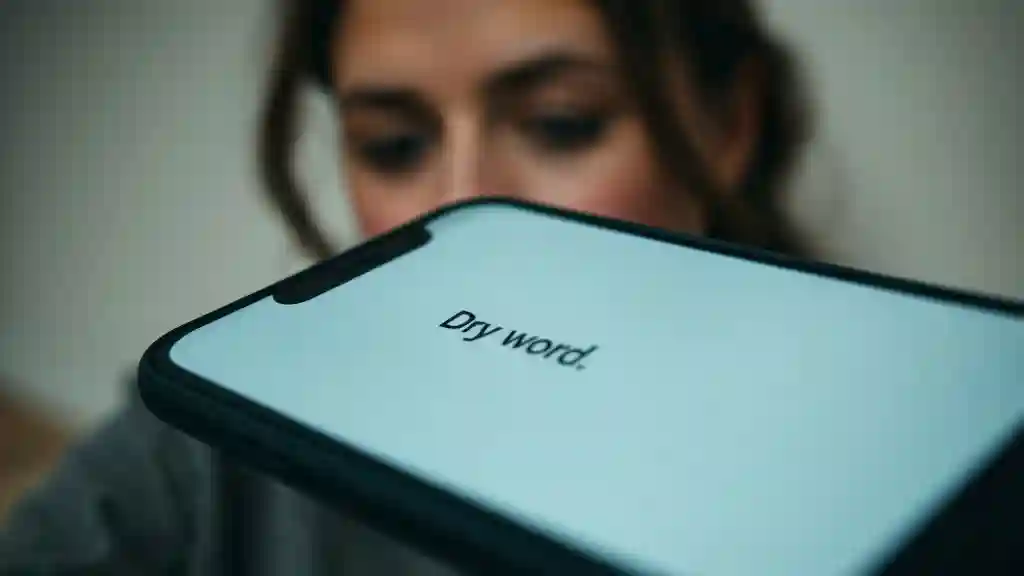
“How to tell if someone’s over you” — that’s the late-night question that eats you alive when texts go unanswered, calls get shorter, and your gut whispers what your heart refuses to admit.
The silence feels louder than words. The shift in their tone, their absence at moments they used to show up for — it’s not just in your head. Psychologists call this emotional withdrawal, and research shows it’s often the biggest predictor of breakups, even before the words “it’s over” are spoken.
Your brain, wired for connection through oxytocin and dopamine, panics when love feels uncertain. That’s why the smallest changes — fewer emojis, a colder hug, an “I’m busy” — spiral into overthinking.
But here’s the thing: the signs are real. And while it hurts to face them, ignoring them hurts more.
Personal Story
Take “Lena” and “Jordan.” They met in college, bonded over music and late-night ramen, and for three years, they were inseparable. But lately, Lena noticed Jordan pulling back. He no longer texted goodnight, skipped their weekend movie ritual, and seemed more excited hanging out with coworkers than being with her.
At first, Lena blamed herself: Was I too clingy? Too boring? But the truth was simpler — Jordan had emotionally checked out. His avoidant attachment style made him retreat without confrontation, while Lena’s anxious attachment kept her chasing harder. The harder she tried, the further he drifted.
Her breaking point came one night when she poured her heart into a long message, only to get a flat: “Yeah, I guess we’ve changed.” That’s when it hit: love wasn’t mutual anymore.
If you’ve been where Lena was, you know the ache of sensing someone is gone while you’re still holding on.
Signs Someone Is Over You: The Brutal Truth

How to tell if someone’s over you Through Their Actions
1. They stop initiating.
If you don’t reach out, there’s no conversation. That’s not busyness — that’s emotional distance. Studies from Purdue University on relationship disengagement show that lack of initiation is one of the first signals of detachment.
2. Plans suddenly don’t matter.
When someone is over you, spending time together feels optional, not essential. Cancelled dates with no effort to reschedule speak volumes.
Emotional Signs Someone Is Over You
3. Their warmth disappears.
This is called emotional flattening — they give you politeness, not intimacy.
4. They stop letting you in.
The late-night confessions, shared dreams, and little secrets vanish. Now, conversations skim the surface — weather, work, “I’m fine.”
Texting & Communication Clues They’re Over You
5. Dry replies become normal.
“Ok.” “Yeah.” “Lol.”
Gone are the paragraphs, inside jokes, and emojis. It’s not laziness. It’s detachment.
6. Delayed or no response.
Everyone gets busy, but love finds a way. If you’ve shifted from instant replies to unread messages, that’s a shift worth noticing.
Body Language That Shows Someone Is Over You
7. No eye contact, no touch.
Neuroscience shows oxytocin fuels closeness. When someone avoids touch or eye contact, it’s not random — their body is signaling emotional exit.
8. They feel absent even when present.
You sit beside them, but their energy is elsewhere. You can’t fake presence, and you feel the void in your bones.
Myth vs. Reality
9. Myth
If they still like your posts or send random “hey” texts, they must care.
10. Reality
That’s often breadcrumbing — keeping minimal contact to soothe their guilt, not because they want to stay.
Cliffhanger Transition
If these signs sound familiar, your gut might already know the answer: they’re over you. But here’s the harder question — what do you do about it? Do you confront them, wait it out, or start walking away?
Let’s talk about your options.
What to Do When Someone’s Over You

Option 1: Speak the Truth Out Loud
If the not-knowing is destroying you, direct honesty may be the only cure. A calm but clear line works best:
“I feel a distance between us.
It’s terrifying, but research in the Journal of Social and Personal Relationships shows that direct communication, though painful, reduces long-term distress compared to living in limbo.
Option 2: Observe in Silence While You Process
Not everyone is ready to confront right away. Sometimes you need time to collect yourself. That’s okay. Use this stage to:
- Write down what you notice (journaling helps separate facts from fears).
- Pull back your effort (don’t over-give when they’ve stopped).
- Rebuild your routine (gym, friends, hobbies).
Psychologists call this self-concept clarity — rediscovering who you are beyond the relationship. It’s a powerful step toward healing.
Option 3: Walk Away for Your Own Sanity
The hardest, but healthiest, choice: leaving. When love has left, clinging only prolongs pain. Walking away doesn’t mean you lost — it means you chose yourself.
How to do it gracefully:
- Say it once. “I can feel you’ve moved on, so I’m moving forward too.”
- Cut the loop. Silence, unfollowing, blocking if necessary — because rewiring your brain away from them requires no contact.
- Rebuild with intention. Therapy, friendships, self-growth — pour your energy into the life you want next.
Neuroscience confirms: when you stop feeding the emotional bond, your brain literally starts rewiring out of heartbreak.

FAQ Section
Q1. Can someone come back after being over you?
Yes, but often out of loneliness or nostalgia, not true commitment. Trust actions, not words.
Q2. How long does it take to move on when someone’s over you?
Research suggests 3–6 months for most people, but it depends on support systems and attachment style.
Q3. Why do they still check in if they’re over me?
That’s breadcrumbing — keeping you around for ego or comfort, not love.
Q4. How do I stop stalking their social media?
Cold turkey. Mute, unfollow, or block if needed. Out of sight accelerates healing.
Q5. Can friendship work if they’re over me?
Only if you’ve emotionally detached. If you still want more, staying friends just prolongs pain.
Conclusion
Here’s the truth you can’t avoid: if someone is over you, clinging to their shadow keeps you from stepping into your light. Love shouldn’t feel like begging. It should feel like breathing. If they’ve stopped choosing you, it’s your turn to choose yourself.
I’ve been there — the late-night waiting, the desperate hope, the ache of sensing someone was already gone. What I learned is this: heartbreak isn’t the end. It’s the invitation to build a life where you are no longer optional.
BY A. Zada.
Ready to heal? Don’t do it alone.
- Try journaling prompts to unpack your emotions.
- Explore therapy apps like BetterHelp or Talkspace.
- Read Attached by Amir Levine to understand your patterns in love.
Or simply share your story below — because sometimes healing starts with saying, “This happened to me.”
Disclaimer: This post is for informational and emotional support purposes only. Every relationship is unique, and this is not professional legal, medical, or mental health advice. Read our full disclaimer.
Affiliate Disclosure: Some links in this post may be affiliate links. If you make a purchase through them, I may earn a small commission at no extra cost to you. Learn more here.